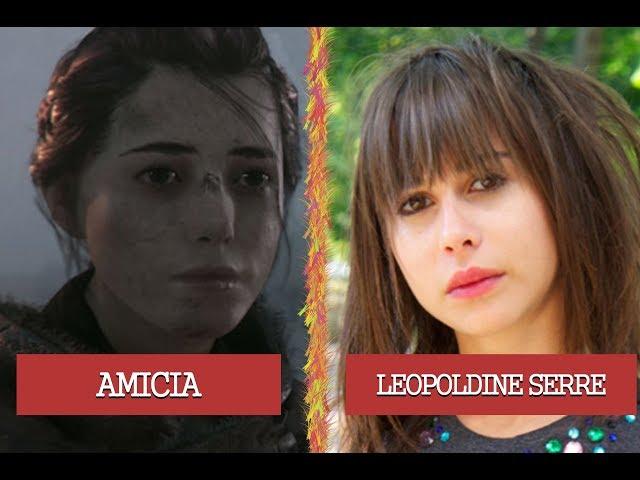French voice actors are raising alarm over the rapid advance of artificial intelligence in the entertainment industry, warning that AI-generated voices threaten to undermine their livelihoods and reshape the creative landscape. As technology companies increasingly develop sophisticated voice synthesis tools, concerns are mounting across FranceŌĆÖs artistic community about job security, authenticity, and the future role of human performers. This growing tension highlights a broader debate over the balance between innovation and protection of cultural and professional heritage in an era dominated by machine intelligence.
French Voice Actors Face Growing Threat from AI in Entertainment Industry
As artificial intelligence tools become increasingly sophisticated, many voice actors across France are expressing deep concerns about their future employment prospects. The rise of AI-driven voice synthesis technology allows producers to generate voices that mimic human intonations and emotions without the need for real performers. Industry insiders warn that this shift could lead to diminished opportunities for traditional talent, especially in dubbing, animation, and video game sectors where voice authenticity has long been paramount.
Several unions and professionals have started advocating for clear regulations to protect voice actors from being displaced by machines. Key issues raised include:
- Copyright and remuneration for AI-generated performances based on real artists’ voices
- Transparency about when AI voices are used in productions
- Ethical standards to prevent unauthorized cloning of actors’ voices
- Support mechanisms for retraining and career transition
| Concern | Voice Actors’ Perspective |
|---|---|
| Job Security | High risk of being replaced by AI-generated voices |
| Creative Integrity | Fear of loss of personal artistry and emotional depth |
| Legal Protection | Need for laws defining rights over voice cloning |
| Industry Transparency | Demand for disclosure when AI voices are used |
Impact of AI on Artistic Integrity and Job Security in French Dubbing
The introduction of AI technologies in the dubbing industry presents a complex challenge to the artistic integrity traditionally preserved by French voice actors. Many professionals express concern that synthetic voices, while efficient and cost-effective, lack the nuanced emotional depth and cultural authenticity that human performers inject into their craft. This tension highlights a deeper debate about the role of technology in creative fields, where artistic expression intertwines closely with cultural identity and audience connection. In this context, the unique timbres and subtle inflections that define French dubbing risk being diminished in favor of mechanically generated outputs, potentially eroding the viewer’s experience.
Beyond concerns of artistic dilution, the rise of AI voices also fuels serious apprehension regarding job security for thousands of dubbing professionals across France. Voice actors face the likelihood of displacement in an industry increasingly inclined toward automation, driven by businesses eager to reduce costs and turnaround times. Among the primary fears voiced are:
- Mass layoffs of voice talent and supporting audio professionals
- Reduced opportunities for emerging artists to enter the field
- Devaluation of human skill and experience in the hiring process
Industry data illustrates the scale of the issue, with recent reports indicating a 30% increase in AI-implemented projects over the last two years, correlating with a 15% decrease in traditional voice acting contracts.
| Year | AI Dubbing Projects (%) | Voice Acting Contracts (%) |
|---|---|---|
| 2021 | 10 | 85 |
| 2022 | 20 | 78 |
| 2023 | 30 | 70 |
Industry Experts Warn of Ethical and Economic Challenges Ahead
Concerns within the industry are mounting as AI-generated voices become increasingly realistic, raising profound ethical questions. Experts argue that the unchecked use of synthetic voice technology challenges the authenticity of artistic expression and threatens to erode the livelihoods of professional voice actors who have honed their craft over decades. They warn that without clear guidelines and protections, the entertainment industry risks prioritizing cost-cutting AI solutions at the expense of human creativity and nuanced performance.
The economic impact may be significant, with potential ripple effects across multiple sectors related to voice work. Industry insiders highlight:
- Job displacement risks for thousands of French voice actors across film, television, radio, and advertising
- Potential devaluation of voice acting as a specialized profession
- Emerging legal battles over voice rights and intellectual property ownership
- Challenges for unions in negotiating fair contracts that incorporate AI use
| Aspect | Potential Impact | Expert Opinion |
|---|---|---|
| Authenticity of Performances | Dilution of emotional depth | “AI cannot replicate humanity” |
| Employment in Voice Acting | Job losses / reduced opportunities | “Urgent need for protective policies” |
| Intellectual Property Rights | Complex legal terrain | “New frameworks required” |
Recommendations for Balancing Innovation with Protection of Human Talent
As AI continues to reshape the entertainment landscape, finding a balance between technological advancement and human talent protection is crucial. Industry leaders are urged to implement ethical frameworks that ensure AI tools serve as enhancements rather than replacements for voice actors. This includes creating clear guidelines on the use of synthetic voices, protecting artistsŌĆÖ intellectual property rights, and maintaining transparent consent protocols for voice data usage. Collaboration between technology developers, unions, and artists can foster an environment where innovation thrives alongside fair compensation and respect for creative labor.
- Establish AI usage standards: Define boundaries for voice replication and synthetic performance.
- Strengthen legal protections: Enforce copyright and likeness rights specifically for voice actors.
- Promote hybrid models: Combine human creativity with AI efficiency to craft unique audio experiences.
- Support ongoing training: Equip artists with skills to adapt alongside evolving technologies.
| Key Recommendation | Benefit |
|---|---|
| Ethical AI Frameworks | Protects artists from exploitation |
| Transparent Consent | Respects voice actors’ autonomy |
| Legal Safeguards | Prevents unauthorized voice replication |
| Collaborative Innovation | Encourages creative synergy |
Final Thoughts
As the entertainment industry stands at the crossroads of innovation and tradition, the rise of AI technology poses significant challenges for French voice actors who fear being overshadowed by machines. While artificial intelligence promises efficiency and cost reduction, the human nuance and cultural authenticity voiced artists provide remain difficult to replicate. The coming months will be critical as policymakers, industry stakeholders, and talent unions deliberate on regulations and protections to ensure that technological progress does not come at the expense of human creativity and livelihoods. FranceŌĆÖs experience may well serve as a bellwether for how the global entertainment sector navigates this complex and fast-evolving landscape.




